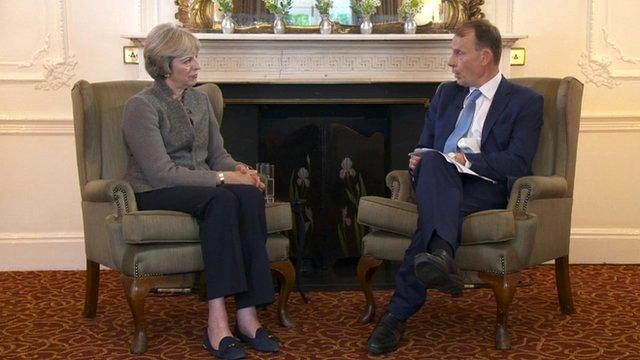Europe will seek Brexit clues in UK election debate
- Published
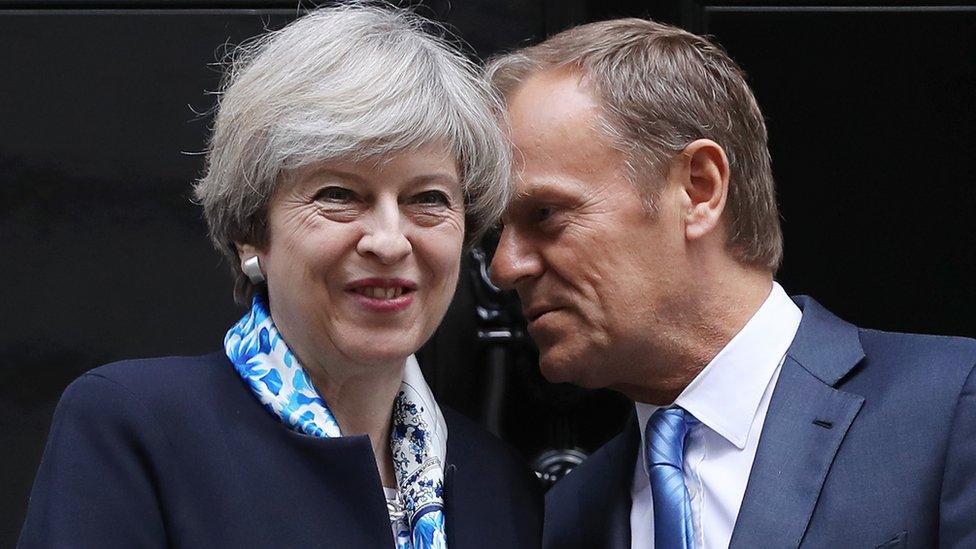
The EC's Donald Tusk meets with the Prime Minister earlier in April
The EU has to be measured in its response to Theresa May's election announcement.
It is not the done thing to interfere in the internal affairs of a member state after all and Britain is still a member state - just about.
EU Council President Donald Tusk has already offered a lesson in what to say when you know you can't say much.
He wrote: "It was Hitchcock who directed Brexit - first an earthquake and the tension rises."
That suggests that Mr Tusk has only a hazy knowledge of the works of Hitchcock - but it also hints at an expectation in Brussels that the Brexit debate is about to heat up.
In domestic terms, Mrs May is hoping for a strong, clear and personal mandate to lead the Brexit negotiations on her own terms. And if the Labour leader Jeremy Corbyn wins he would also claim endorsement for placing his own political priorities at the centre of the talks to come.
But in European terms, that's something of a secondary issue.
The EU Commission's lead negotiator, Michel Barnier, is going to have to deal with whoever is in residence in 10 Downing Street and the strength of the occupant's mandate won't be his concern.
His team have already said that while the announcement doesn't change anything, there's a hope that it will produce a strong leader with strong backing from the people of the UK.
And we can be sure this British election will be watched with even closer attention than usual - not just in Brussels but in the other European capitals where Brexit is going to be a huge issue in the years to come.
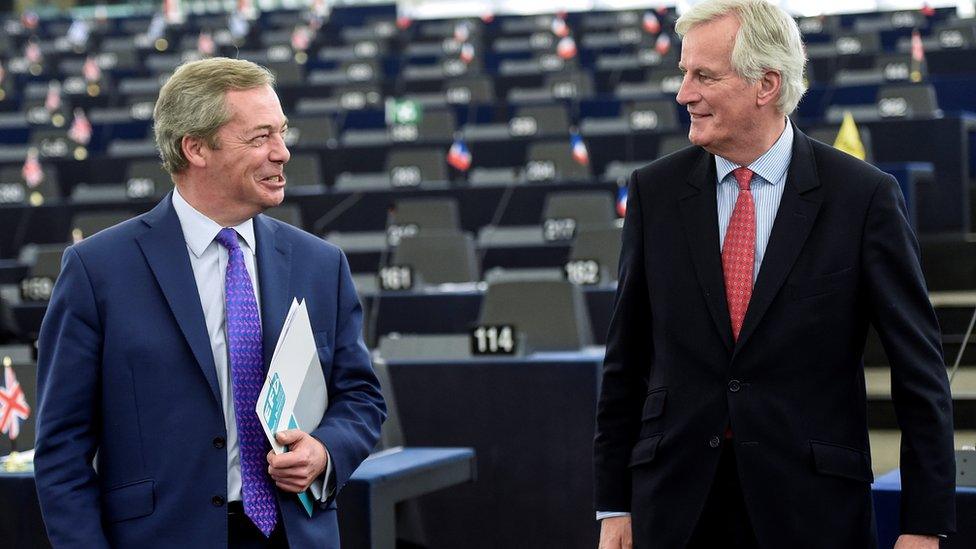
Chief EU negotiator Michel Barnier, right, said he'll deal with whoever is prime minister
First, both Theresa May and all her rivals will have to set out their visions for Brexit in much more detail than we've heard so far.
British voters will demand nothing less.
But in the process, the Barnier team and the governments of France, Germany and the rest will get a feeling for where the British red lines in negotiations really lie.
Any British candidate worth his or her salt will try to leave room for manoeuvre in the talks to come after the election, but it will surely be impossible to campaign without giving away at least some detail.
The Remainers' voice
And of course there are romantics across Europe who hope that the voice of the Remainers will be heard loud and clear in the British debate to come.
The hope that Brexit might be quickly reversed has pretty much faded from the European debate now, but plenty of politicians across the continent will be hoping to hear candidates putting forward the argument for a soft Brexit with the closest possible links to the EU and its single market.
That may be wishful thinking, but there'll be strong support for such voices from many quarters in Europe.
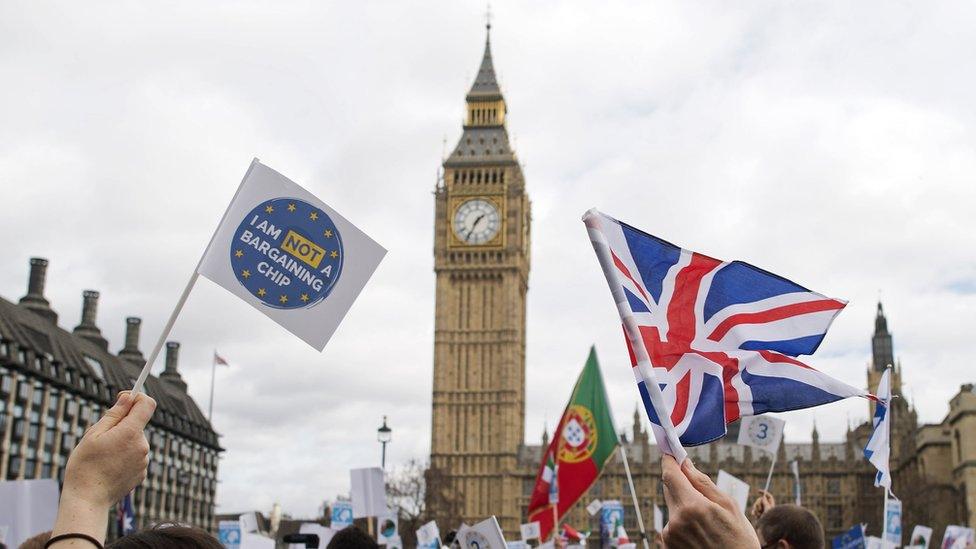
There is hope there will be strong pro-European voices in the debate - even if Brexit is sure to go ahead
Europe was taken by surprise by Theresa May's announcement, but not taken aback. The EU negotiators have been working hard behind the scenes to prepare their position and their message is that they're ready to negotiate with Britain, no matter who occupies 10 Downing Street.
This was already a busy year for European democracy - the Netherlands has already voted, while France votes for a president at the weekend and will hold National Assembly elections in June.
Germany goes to the polls in September.
But there's an awareness that the UK election will be different precisely because it will play a huge part in shaping the British negotiating position on Brexit.
And, of course, there's also the fascination of the pure political theatre of it all.
- Published18 April 2017
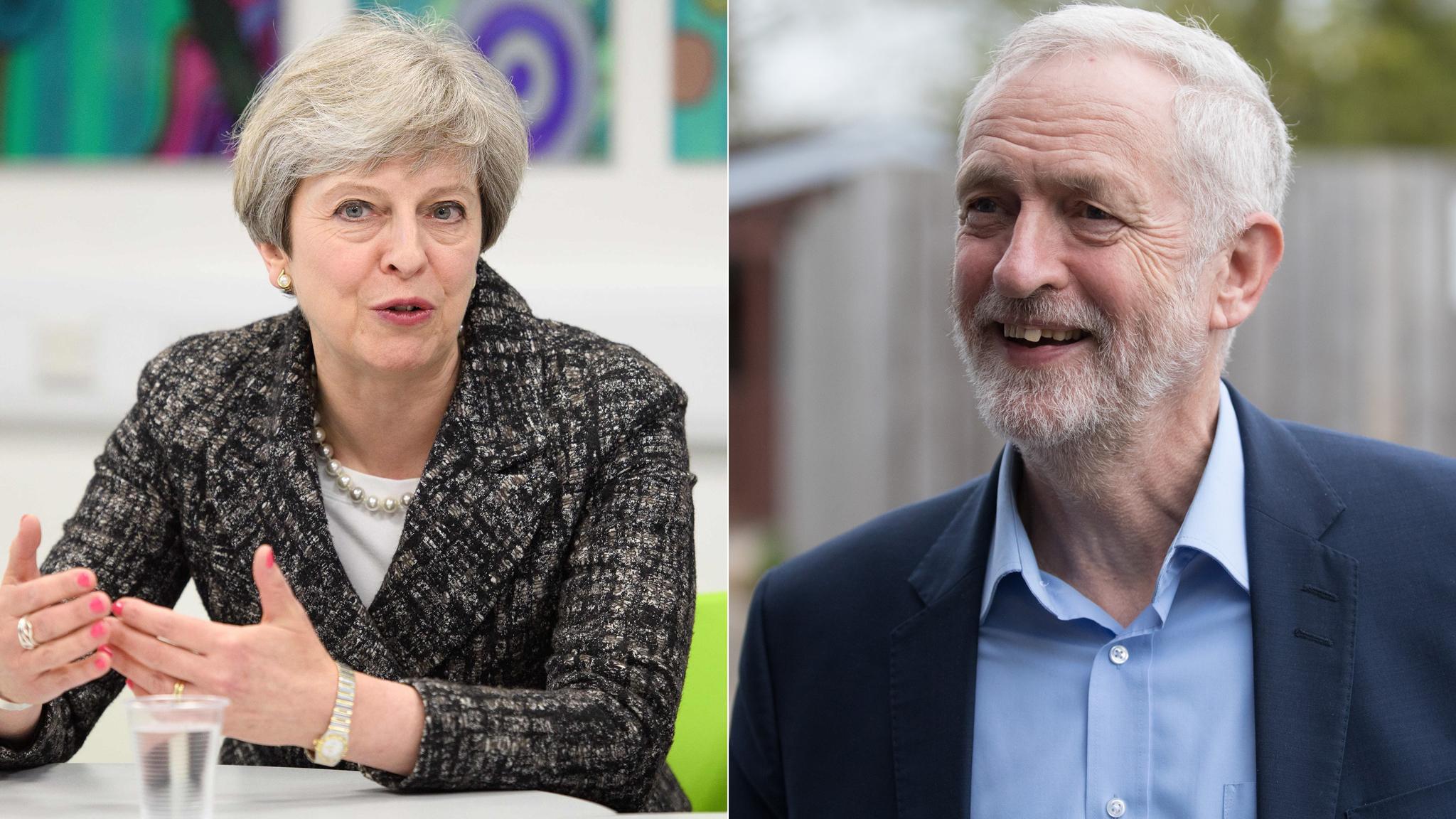
- Published18 April 2017
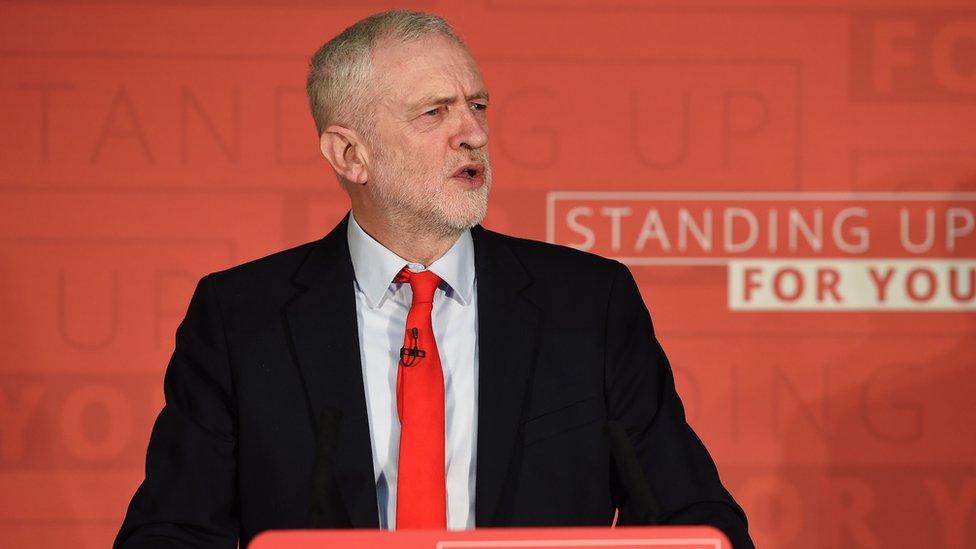
- Published18 April 2017
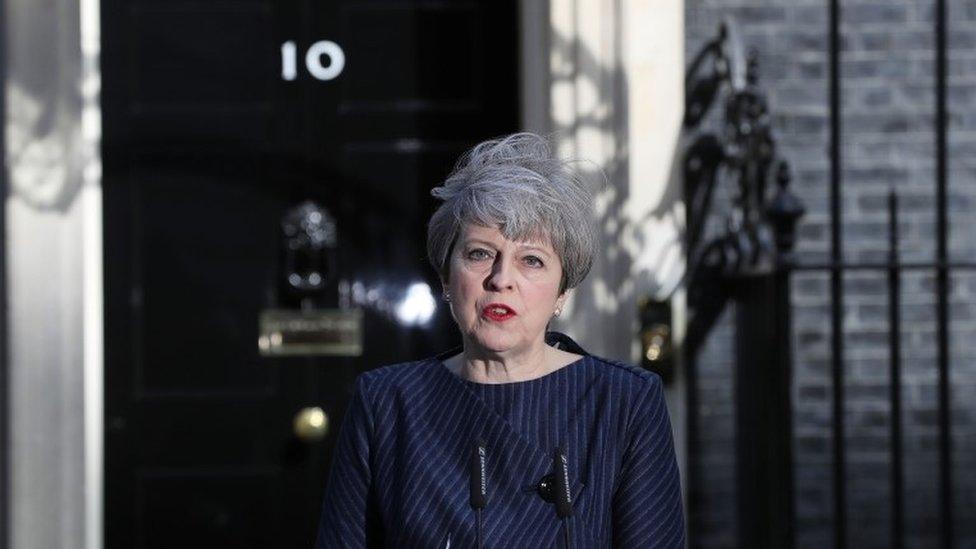
- Published18 April 2017
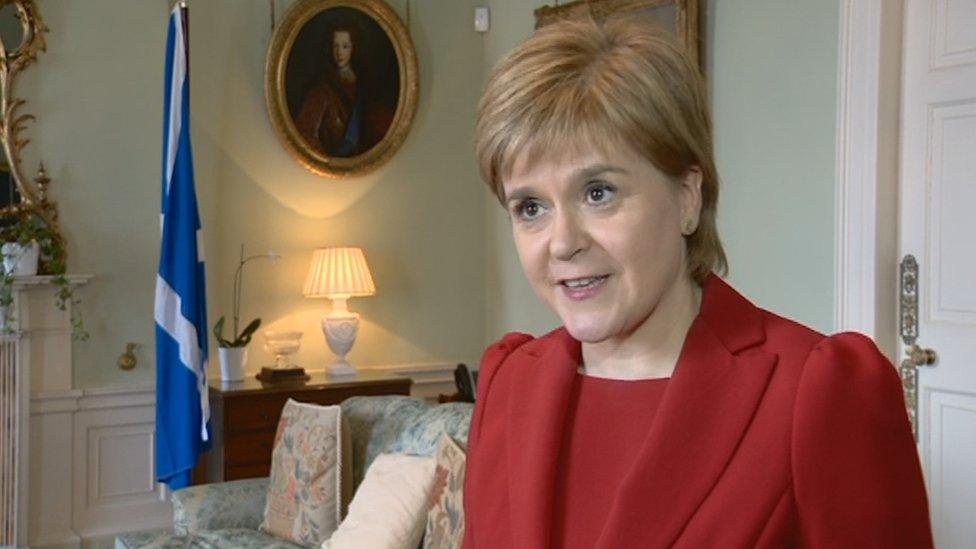
- Published4 September 2016
